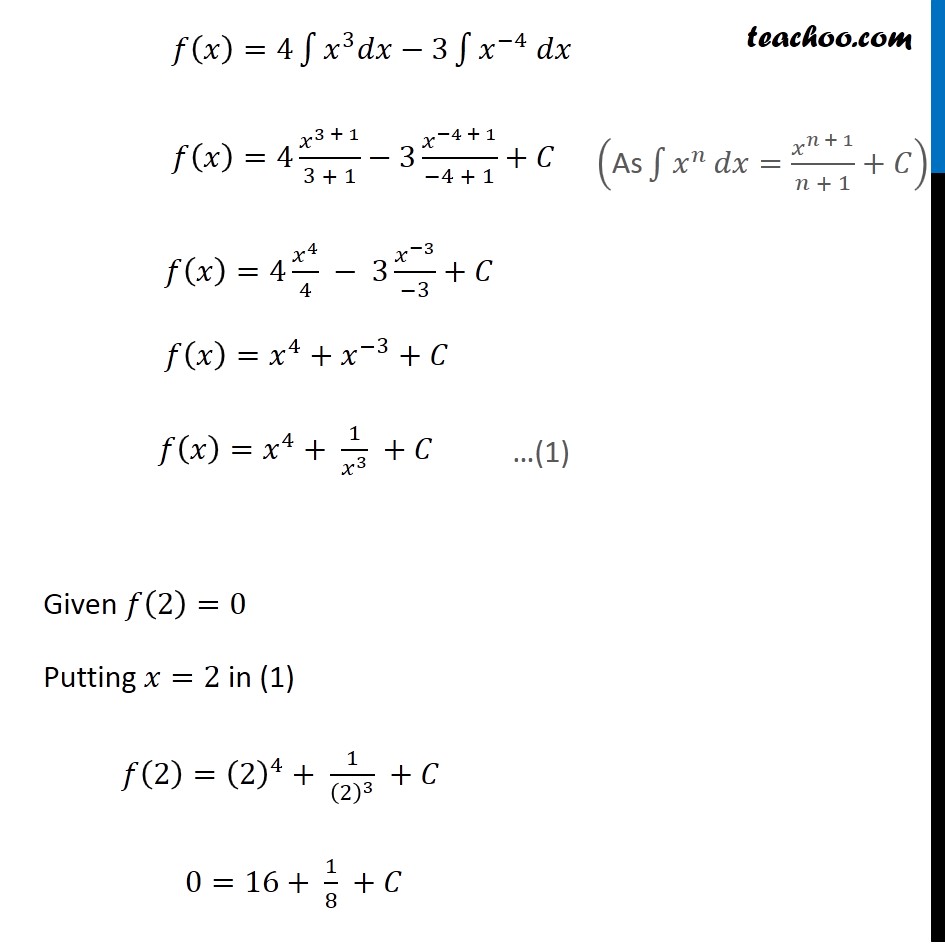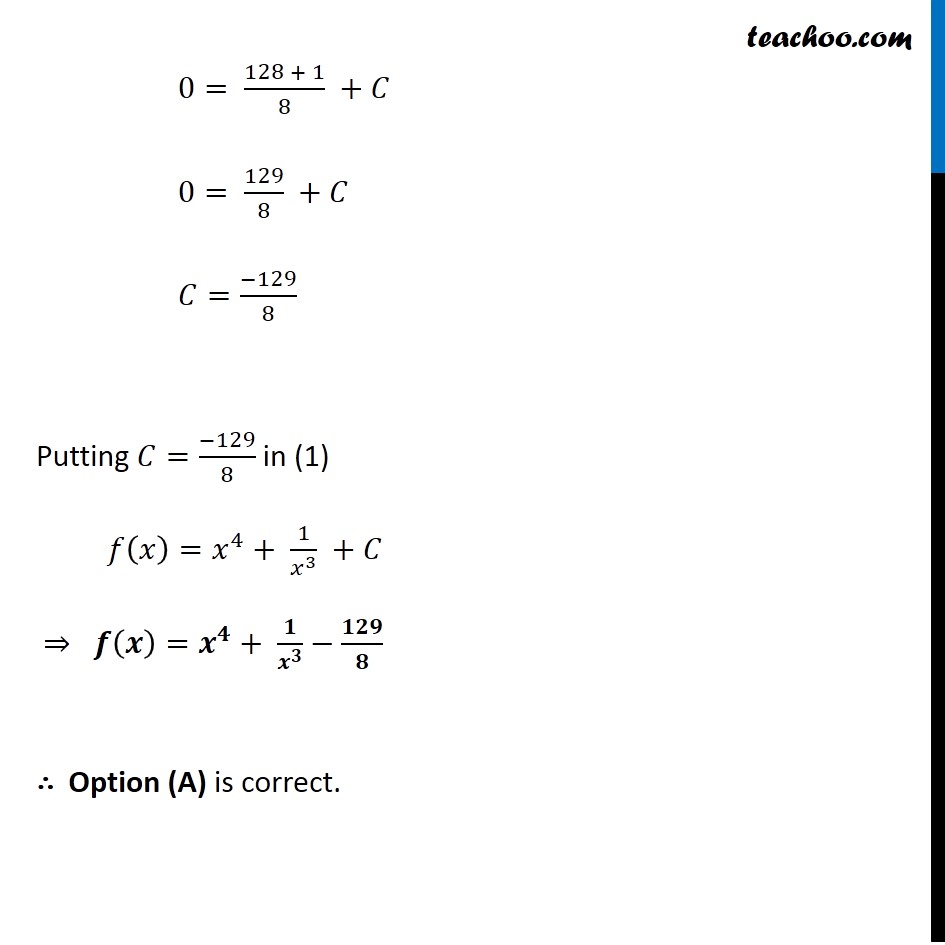


Ex 7.1
Last updated at Dec. 16, 2024 by Teachoo



Transcript
Ex 7.1, 22 If 𝑑/𝑑𝑥 f(x) = 4x3 − 3/𝑥4 such that f(2) = 0, then f(x) is x4 + 1/𝑥3 − 129/8 (B) x3 + 1/𝑥4 + 129/8 (C) x4 + 1/𝑥3 + 129/8 (D) x3 + 1/𝑥4 − 129/8 Given 𝑑/𝑑𝑥 f(x) = 4x3 − 3/𝑥4 Integrating both sides ∫1▒〖𝑑/𝑑𝑥 𝑓(𝑥) 〗=∫1▒(4𝑥^3− 3/𝑥^4 )𝑑𝑥 ∫1▒𝑑/𝑑𝑥 𝑓(𝑥)=4∫1▒〖𝑥^3 𝑑𝑥〗−3∫1▒〖1/𝑥^4 𝑑𝑥〗 𝑓(𝑥)=4∫1▒〖𝑥^3 𝑑𝑥〗−3∫1▒〖𝑥^(−4) 𝑑𝑥〗 𝑓(𝑥)=4 𝑥^(3 + 1)/(3 + 1)−3 𝑥^(−4 + 1)/(−4 + 1)+𝐶 𝑓(𝑥)=4 𝑥^4/4 − 3 𝑥^(−3)/(−3)+𝐶 𝑓(𝑥)=𝑥^4+𝑥^(−3)+𝐶 𝑓(𝑥)=𝑥^4+ 1/𝑥^3 +𝐶 Given 𝑓(2)=0 Putting 𝑥=2 in (1) 𝑓(2)=(2)^4+ 1/(2)^3 +𝐶 0=16+ 1/8 +𝐶 0= (128 + 1)/8 +𝐶 0= 129/8 +𝐶 𝐶=(−129)/8 Putting 𝐶=(−129)/8 in (1) 𝑓(𝑥)=𝑥^4+ 1/𝑥^3 +𝐶 ⇒ 𝒇(𝒙)=𝒙^𝟒+ 𝟏/𝒙^𝟑 −𝟏𝟐𝟗/𝟖 ∴ Option (A) is correct.